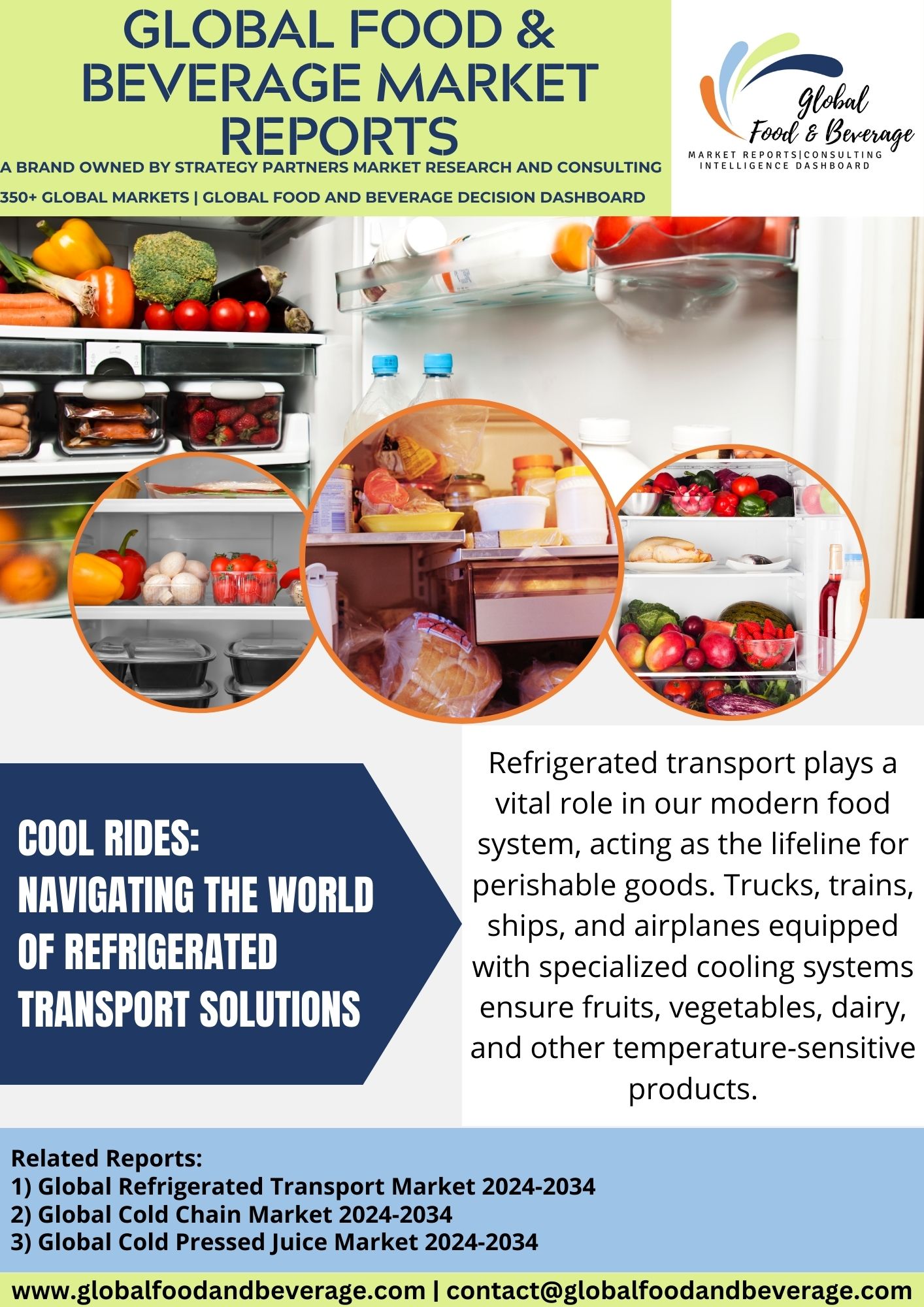Refrigerated transport, also known as reefer transport, plays a critical role in the safe and efficient transportation of temperature-sensitive goods across various industries. This specialized mode of transportation involves the use of refrigerated vehicles or containers equipped with temperature control systems to maintain specific temperature conditions throughout the journey.
The primary purpose of refrigerated transport is to preserve the quality and integrity of perishable goods, including food products, pharmaceuticals, and certain chemicals, by regulating temperature, humidity, and sometimes ventilation. Maintaining the optimal conditions during transit is crucial to prevent spoilage, maintain product freshness, and adhere to stringent regulatory requirements.
In the food industry, refrigerated transport is indispensable for the distribution of fresh produce, dairy products, meat, seafood, and other perishable items. The cold chain, which includes refrigerated storage and transport, ensures that these goods reach their destination in optimal condition, extending their shelf life and preserving their nutritional value.
Pharmaceutical companies rely heavily on refrigerated transport to safely transport temperature-sensitive drugs, vaccines, and biologics. Strict temperature control is essential to prevent degradation and maintain the efficacy of these products, ensuring they meet regulatory standards and are safe for consumption.
Refrigerated transport is also employed in the floral industry for the shipment of flowers and plants, as well as in the chemical and electronics industries where certain products require controlled temperature environments to prevent damage or degradation.
Advancements in refrigeration technology, such as GPS tracking, remote temperature monitoring, and improved insulation materials, have enhanced the efficiency and reliability of refrigerated transport. These technologies provide real-time visibility into temperature conditions, allowing for quick responses to any deviations and ensuring the quality of the transported goods.
As global trade continues to expand, the demand for refrigerated transport is expected to grow, driven by the increasing need for safe and reliable transportation of perishable goods across borders. The effectiveness of refrigerated transport not only supports various industries but also plays a crucial role in delivering fresh and safe products to consumers worldwide.
ADVANCEMENT:
The refrigerated transport sector has undergone significant advancements, revolutionizing the storage and transportation of perishable goods on a global scale. One key development is the integration of advanced refrigeration technologies. Innovations in cooling systems, such as more efficient compressor designs and sustainable refrigerants, contribute to improved temperature control, ensuring the integrity of products throughout the supply chain.
The rise of real-time monitoring and telematics has brought about a paradigm shift in refrigerated transport. IoT-enabled sensors and tracking devices allow for continuous monitoring of temperature, humidity, and other critical parameters. This not only ensures compliance with regulatory standards but also provides real-time visibility into the condition of the cargo, reducing the risk of spoilage and enhancing overall supply chain efficiency.
Furthermore, there’s a notable trend towards sustainability in refrigerated transport. The development of eco-friendly refrigeration units and the adoption of alternative fuels align with the industry’s commitment to reducing its environmental footprint. These advancements not only address environmental concerns but also respond to the growing consumer demand for sustainable and responsibly sourced products.
CHALLENGE:
Refrigerated transport, essential for the safe and efficient distribution of perishable goods, faces several challenges in the global logistics industry. One significant challenge is maintaining a consistent temperature throughout the entire supply chain. Fluctuations in temperature during transportation can compromise the quality and safety of perishable products, leading to spoilage and financial losses. Achieving and maintaining the required temperature conditions in different climates and during various stages of transportation is a complex logistical challenge.
Energy consumption and environmental impact pose ongoing concerns. Refrigerated transport systems, especially those reliant on traditional refrigerants, can contribute significantly to greenhouse gas emissions. Developing more energy-efficient technologies and adopting environmentally friendly refrigerants are crucial challenges to reduce the environmental impact of refrigerated transportation.
Regulatory compliance adds complexity. Different regions have varying regulations regarding the transportation of perishable goods, including temperature control standards, documentation requirements, and hygiene protocols. Navigating these diverse regulatory landscapes requires logistics providers to invest in compliance expertise and technologies to ensure adherence to standards and avoid delays in cross-border movements.
Infrastructure limitations impact efficiency. In some regions, the availability and quality of infrastructure, such as cold storage facilities and well-maintained transport routes, can be a challenge. Inadequate infrastructure hampers the seamless flow of refrigerated goods, leading to delays and potential product losses.
Technological advancements and innovation are critical for the industry’s growth. Developing smart monitoring systems, advanced insulation materials, and more energy-efficient refrigeration technologies are ongoing challenges. Investing in research and technology adoption is essential for improving the efficiency and sustainability of refrigerated transport.
CONCLUSION:
In conclusion, the refrigerated transport sector plays a pivotal role in maintaining the integrity of perishable goods across the supply chain. The global market is witnessing continual growth driven by increased demand for fresh and frozen products. The emphasis on food safety, adherence to stringent regulations, and the expansion of the pharmaceutical and healthcare industries contribute to the industry’s resilience. As consumers seek access to a wider variety of perishable goods globally, the refrigerated transport market is expected to evolve. Innovations in technology and sustainability practices further position this sector for sustained growth, meeting the dynamic needs of a rapidly changing logistical landscape.
